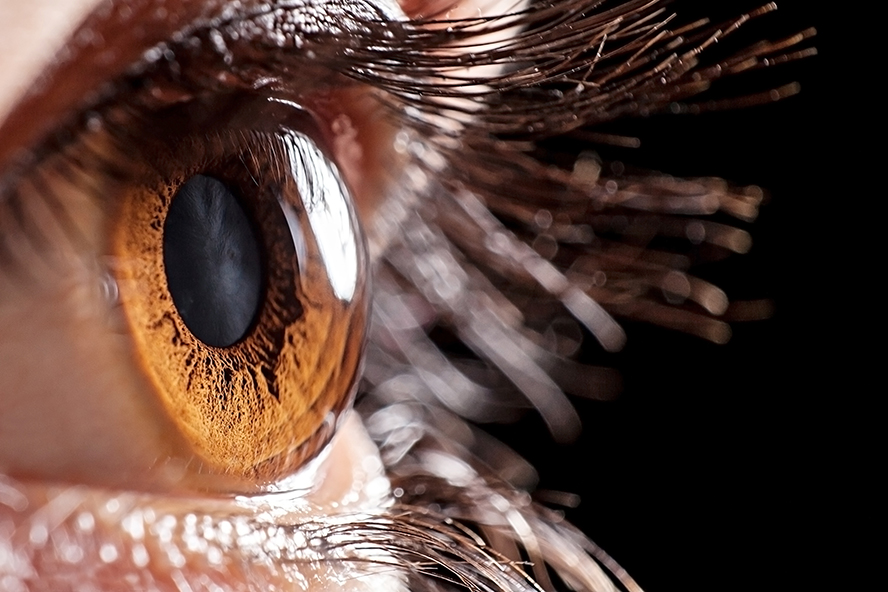UAntwerp leads European consortium in search of new treatment for Dry Eye Disease. More and more people are suffering from dry eyes, partly because of our intensive screen usage. Scientists at the University of Antwerp are joining the search for new treatments for this condition under the aegis of a European consortium.
In the past, it was mainly older women who struggled with Dry Eye Disease (DED). Estimates of the number of patients vary, but it is assumed that between 5% and 35% of adults worldwide suffer from it. Three times more women than men have DED. The condition, caused by enzymes that bring about pain and inflammation, can lead to loss of vision.
“Experts expect the number of patients to rise dramatically in the future”, says Prof. Koen Augustyns, medical chemist at UAntwerp. “This is partly because people keep getting older, but frequent screen usage, environmental pollution and contact lenses also play a role.”
Doctors currently prescribe tear substitutes, such as drops or a gel, to treat DED. Anti-inflammatory therapy is also used. But there is a need for new and better treatments. With that in mind, an international consortium has been launched with the financial support of the EU (Marie Curie Innovative Training Network): Integrated Training in Dry Eye Disease Drug Development, or IT-DED3 for short.
Lengthy process
The consortium is coordinated by UAntwerp, which has accumulated years of experience with harmful enzymes in the Medicinal Chemistry and Medical Chemistry research units and the Microbiology, Parasitology and Hygiene laboratory. In addition to Antwerp’s university, the consortium also includes the Sorbonne Université (France), the University of Valladolid (Spain), the Latvian Institute of Organic Synthesis (Latvia), the University of Eastern Finland (Finland), the University Hospital Cologne (Germany) and the Institute of Experimental Biology and Technology (Portugal).
“Drug research is a lengthy process”, Augustyns explains. “In Antwerp, we have compiled a large ‘library’ of interesting enzyme inhibitors. These must now be tested further, for efficacy and safety for example. IT-DED3 is offering 12 young, enterprising and innovative researchers the opportunity to work on new therapies under expert guidance. The aim, of course, is to find more effective treatments.”
The IT-DED3 project runs until the end of 2021 and will be launched officially during a kick-off meeting at Hof van Liere, at UAntwerp’s city-centre campus, on Thursday 11 and Friday 12 January.
Want to know more?
Prof. Koen Augustyns (UAntwerp): koen.augustyns@uantwerpen.be
Peter De Meyer, University of Antwerp spokesman: peter.demeyer@uantwerpen.be and +32 476 20 07 54










